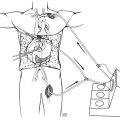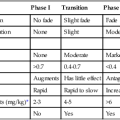Living with a chronic condition or managing post-operation care at home can be incredibly challenging especially if one’s significant other or family are not medical professionals. By careful research and consideration of what the healthcare practitioner in question has recommended, a caregiver can draw up a plan for the management of home health care needs in an effective manner.
It Is All In The Schedules
Caregiving is about many factors but one important one is managing time effectively and maintaining a tailored schedule. Individuals that require home care for their health conditions need to exercise at a certain time, have a particular kind of diet, take their medicines at certain times and meet scheduled appointments with their doctor or therapist.
A caregiver should start the day by crafting a comprehensive to-do list ideally breaking up the day into blocks in which certain tasks must be completed. The exact nature of this schedule will depend on the health problem and the level of independence or lack thereof practiced by the patient.
Monitoring
Monitoring the results of the care plan is crucial especially in the interim period between doctor’s appointments. This monitoring is often shared with the doctor on a regular basis and helps them devise changes in medicine or routine. The care team of any patient includes a number of healthcare workers from pharmacists to nurses or physical therapists and not just medical specialists.
Logs can be maintained physically or digitally to chart progress as well as where medical interventions are failing or progressing slowly. Monitoring also means checking in every now and then whether medical supplies such as medicines or instruments such as trach supplies are available or not (in the case of a Tracheostomy procedure).
Keep Loved Ones In The Loop
Family and close friends need to be kept in the loop regarding the affected individual’s condition and care plan so they can contribute and pitch in wherever possible. Emotional support carries immense value and a patient’s loved ones can provide that along with quality time spent, plenty of conversation and other activities. If a caregiver is stationed in a house, they should early on develop streams of communication with not just the medical practitioners but the immediate family as well.
Change The Lifestyle
A major part of healing quickly is holistically applying changes to one’s lifestyle. If a major health problem has occurred such as a fall or a heart attack, there are usually upon closer inspection many events leading up to such an illness. The primary healthcare practitioner will usually make suggestions and recommendations on lifestyle changes which must be followed. Lifestyle changes can be anything from diet, physical therapy, supplements, medicines as well as things like work hours or even line of work. Following a major illness many people prefer to start working from home and taking on fewer projects and assignments.
Conclusion
Managing one’s health at home can be convenient if systems are created for communication, seeking help, procuring medicine and taking it on time. Everyone recovers better in the comfort of their own home!




